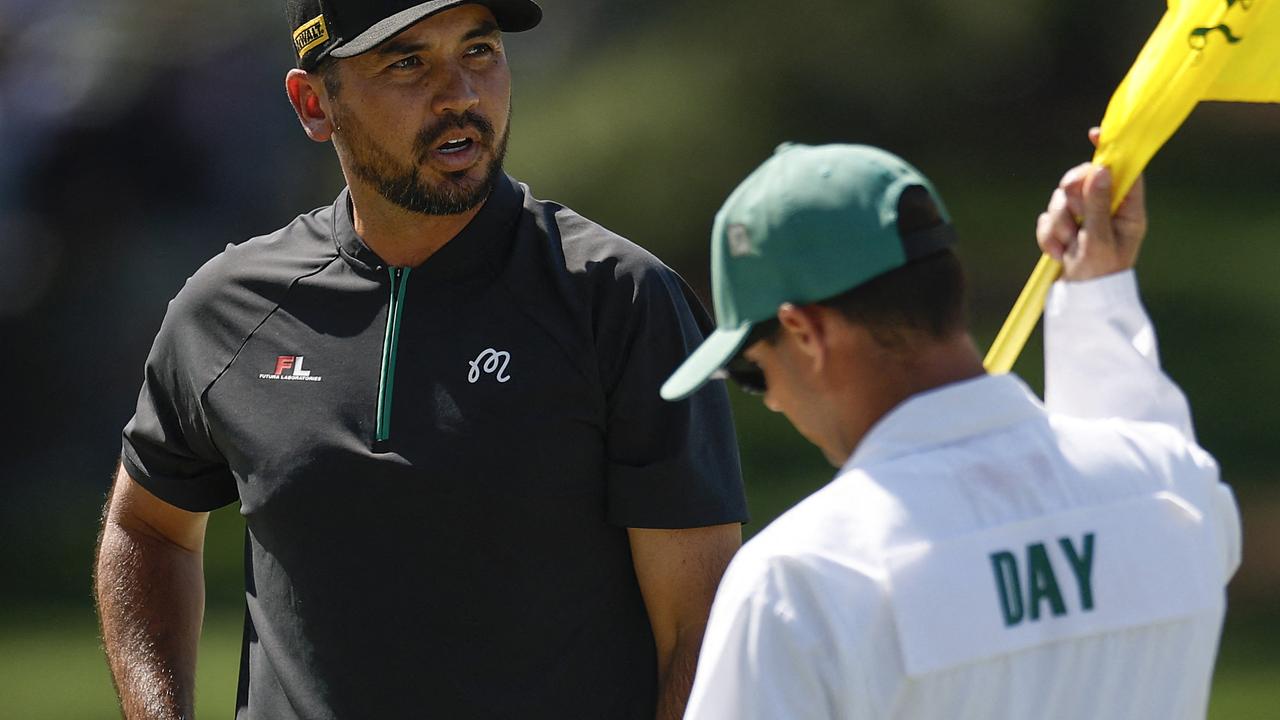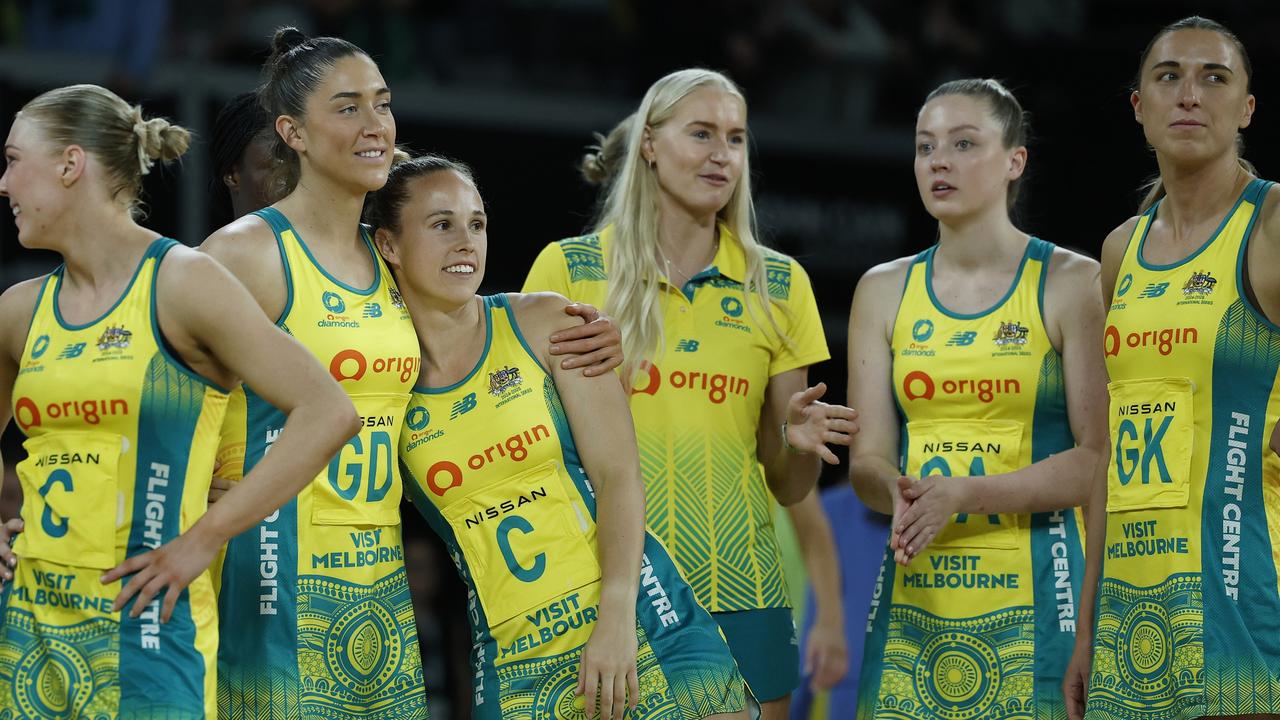National Socialist Network leaders Thomas Sewell, Joel Davis to form neo-Nazi political party
Two notorious Aussie fascists who fronted court claiming political persecution are plotting to form a neo-Nazi political party.
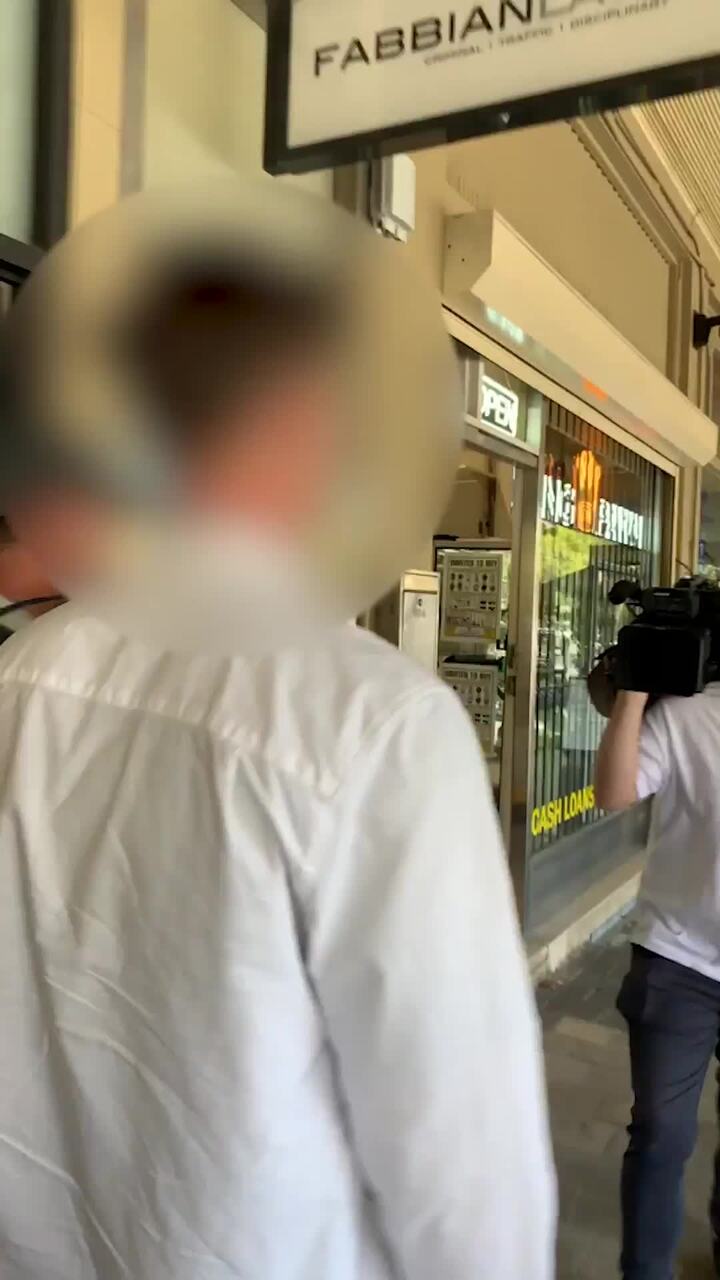
National Socialist Network (NSN) leaders Thomas Sewell and Joel Davis are preparing to form a new political party.
The shock move to legitimise neo-Nazi political expression was confirmed on Thursday at Adelaide Magistrates Court, where the pair claimed to be victims of political persecution in relation to an NSN Australia Day rally.
Police arrested and charged 16 people with loitering and displaying Nazi symbols after some 40 men stormed the CBD that day, chanting “white man fight back” and singing “Waltzing Matilda”. Charges against some have since been withdrawn.
Sewell is charged with loitering and display a Nazi symbol, while Davis is charged with two counts of use a Nazi symbol.
On Thursday, defence lawyer Matthew Hopkins confirmed Davis and Sewell would contest the allegations and argued the alleged offences impinged on their implied constitutional rights to political expression.
“They do intend to form a political party and it would be a radical departure in Australian constitutional jurisprudence for an ideology to be outlawed,” he said.
“And that’s really where we are going with this.”
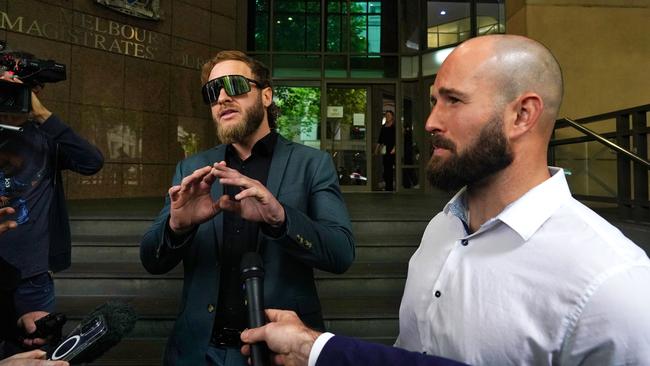
To register a new political party, Sewell and Davis will have to collect 1500 signatures, according to the Australian Electoral Commission’s party registration guide.
New non-parliamentary parties must submit a written constitution, submit a party name, state the supporting applicants, submit a $500 application fee and provide a membership list of between 1500 and 1650 members.
Mr Hopkins said the NSN had been “targeted” by the police and suggested the NSN march was a form of political expression comparable to Survival Day rallies.
“There were numerous demonstrations happening in Adelaide,” he said.
“And it seems to be the case where it is this particular organisation that has been targeted as a special group.
“They were carrying the Australian flag, they were at no stage anywhere near those protests.
“One of them was called anti-Australia Day, one was called Invasion Day.
“You have polarising ideologies here that are in conflict and as part of our constitutional representative government we allow for that and that is part of the reason why the right to political communication is there, so that there is an outlet for legitimate displays of an ideology.”

Sewell and Davis, who appeared in court via telephone from Victoria, are avowed fascists and have expressed admiration for German dictator Adolf Hitler.
Hitler led the Nazi war machine in the 1930s and 1940s and orchestrated the extermination of some six millions Jews across Europe.
Sewell’s alleged display offence relates to a patch worn on his arm sleeve at the rally.
It shows a four-arrow symbol pointing inward.
Prosecutor Phoebe Foster-Richardson confirmed that while it was not a swastika, she would argue it was a fascist symbol outlawed under South Australian legislation.
The state parliament outlawed the display of Nazi symbols or salutes following a sharp and sudden increase in anti-Semitic expression across the country after the terror attack on Israel on October 7, 2023.
The law came into effect in December 2024.
Mr Hopkins argued the legislation was fundamentally authoritarian and “fascist” by seeking to ban a political ideology.
Sewell and Davis are both on bail and prohibited from communicating with or contacting other NSN members from the march.
Mr Hopkins objected to the non-communication and non-contact clauses in the bail agreement, arguing they were not proportionate to the alleged offending and infringed on his clients’ political rights.
He also said there was “zero chance” of a successful prosecution.
Ms Foster-Richardson rejected that assertion and maintained the bail conditions were justified given the risks of potential reoffending.
She also disputed the argument that Sewell and Davis’ political rights had been abrogated, noting the pair continued to widely disseminate their fascist views on open-source channels.
Magistrate Luke Davis rejected Mr Hopkins’ application to alter the conditions and said there was “a degree of fake innocence” to Sewell and Davis’ claims of persecution.
He acknowledged there were “live issues” for the defence and prosecution to battle over at trial.
The matter was listed for pre-trial conference on May 29.
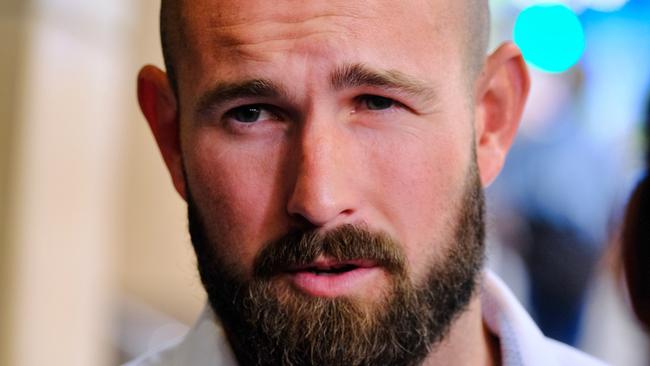
Speaking outside court after the hearing, Mr Hopkins said it was an “abomination” that legislation would try to ban or criminalise a “legitimate political ideology”.
“We have a political system in this country where people are able to express a political ideology, and if you don’t like it, so be it,” he said.
When pressed whether Sewell and Davis embodied far-right extremism, Mr Hopkins said there was a “spectrum of political discourse” in the country.
“Certainly, there are organisations on the Right and there are organisations on the Left,” he said.
“The Left think the Right are extreme, the Right think the Left are extreme, that’s essentially what we are facing here.”
At an earlier court appearance, police alleged the NSN was preparing for a “race war” and hoped to usher in a white supremacist ethnostate.
The court was told the men said they wore black outfits to “represent the ideal of national socialism” and eliminate their individual identities.


